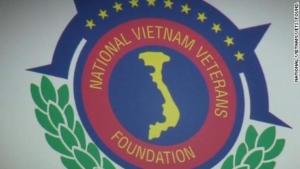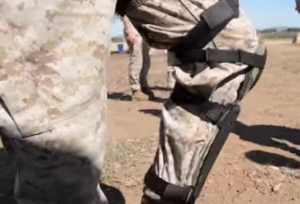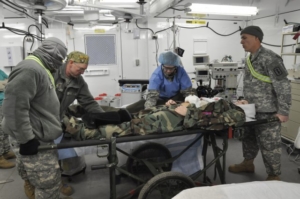Veteran’s Suicide Tragedy Compounded by Financial Consequences

By Debbie Gregory.
On July 5th, Stephen Coning, a 26-year- old veteran who had served three deployments as a Marine Infantryman, tragically took his own life. Coning was part of the infamous 2/7 Marines, a unit that has been plagued by a suicide rate sixteen times that of the national average.
Two days later, the Department of Veterans Affairs released data showing that the rate of suicide for those who served is much higher than for civilians. But despite that connection, the VA does not presume all suicides to be “service connected.”
After Coning transitioned out of the military in 2013, he went to school on the GI Bill and got a job as a veterinary tech.
Although Coning was a great father, he had trouble sleeping, was short-tempered, and didn’t do well in crowds. He always wanted his back to a wall. His wife, Sky, believed her husband had post-traumatic stress disorder, but he was never tested for it by the VA.
“The VA recommended that he go through PTSD testing but he did not,” she says. And not getting tested had consequences that her husband surely never intended, as there is no medical record that Coning was depressed or had PTSD.
With nothing formal to show a strong connection between his time in Afghanistan and his suicide, the VA can’t rule his death service connected.
If a veteran has been rated as 100 percent disabled, or has a VA diagnosis linked to suicide, then the VA can pay several thousand dollars for a funeral and grant a surviving spouse a monthly support payment. But without proof a death is connected to military service, the VA pays just a few hundred dollars for burial and can help find a plot in a cemetery.
Unofficial help has come from the local Indiana state VA, which used a discretionary fund and paid thousands of dollars for the funeral. Additionally, the Marine Corps League covered Sky’s mortgage for two months, and many strangers have contributed to the family’s GoFundMe page.
Also, the anti-suicide group Spartan Weekend donated $4,000 for Coning’s burial, and has started a memorial fund in his name. They are also petitioning to increase the amount the VA pays for burials, even if they’re not service connected.
Sky will now need to collect testimony from friends and family that her husband’s 30% VA disability rating for nerve damage and hearing loss was not the only disability her husband had. Only then might the VA grant service connection and pay benefits and burial.
Military Connection salutes and proudly serves veterans and service members in the Army, Navy, Air Force, Marines, Coast Guard, Guard and Reserve, and their families.


























